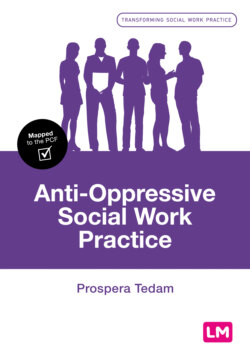Читать книгу Anti-Oppressive Social Work Practice - Prospera Tedam - Страница 62
На сайте Литреса книга снята с продажи.
Representations of power
ОглавлениеHere, Smith (2008a) argues that there are four ways in which power may be conceptualised: the potential of power, power as possession, power as process and power as product. The potential of power refers to the capacity to individuals, groups and communities to realise change or influence outcomes, while the power as possession implies a much more fixed view. Child protection social workers, for example, utilise this as representing a social institution that possesses legal authority. Power as process recognises the power inherent in group processes. The Family Group Conference is an example of social work practice that uses a creative and collaborative approach to decision making with service users. Finally, power as a product recognises that it is an outcome of social relations. An example of this are ‘experts by experience’ groups who promote their own power by coming together as a group and self-advocating. These representations of power should be an important consideration for social workers who seek to work in non-oppressive ways with service users.
In addition to these representations of power, French and Raven (1959) offer a fivefold typology of power:
1 Referent power.
2 Expert power.
3 Reward power.
4 Coercive power.
5 Legitimate power.
